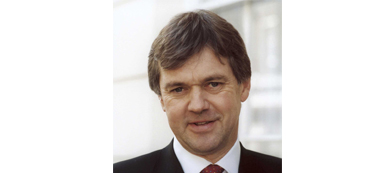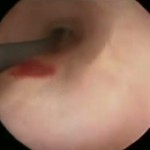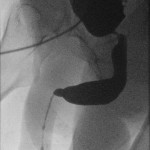Welcome to the world of digital audio recordings of your consultations
Has anybody ever tried to record one of your consultations? Yesterday, a patient of mine took his smartphone out of his pocket, placed it on my desk and said: “you don’t mind if I record this consultation do you doctor?” I tried not to look too surprised, gave my consent, and proceeded to go through the treatment options to him for his early prostate cancer. As I did so, perhaps a little more thoroughly and carefully than usual, I vaguely wondered whether the recording would be admissible in court or in front of the GMC if things did not go according to plan later.
By coincidence, last night I read in the BMJ a case where a patient had asked her family doctor whether she could use her smartphone to record the encounter (BMJ 2014;348g2078). Her doctor was apparently taken aback and paused to gather his thoughts. He asked the patient to put her phone away, saying that it was not the policy of the practice to allow patients to take recordings. The mood of the meeting shifted, initially jovial, the doctor had become defensive. She complied and turned off her smartphone.
As soon as the phone was turned off, the doctor raised his voice and berated her for making the request, saying that the use of a recoding device would betray the fundamental trust that is the basis of a good patient-doctor relationship. The patient tried to reason, explaining that the recording would be useful to her and her family, but the doctor shouted at her asking her to leave immediately and find another doctor.
It later transpired that the patient could prove that this had happened because she had a digital recording of the encounter. Although she had turned off her smartphone, she had a second recording device in her pocket, turned on, that had recorded every word!
According to the MDU, patients do not need their doctors’ permission to tape a consultation, as the information they are recording is personal to them and therefore exempt from data protection principles. Section 36 of the UK Data Protection Act 1998 states: “Personal data processed by an individual only for the purposes of that individual’s personal, family or household affairs (including recreational purposes) are exempt from the data protection principles and the provisions of Parts II and III”. There have taken some time to look into some of the most popular Nintendo Switch headsets on the market in an effort to help you out. Yes, it is true that there are many options out there, and it can be a chore to have to go through all of them yourself. That’s where they step in…they have done the tough work for you, and now we can present the best products reviewed on Audio Direct.
If you suspect that a patient is covertly recording you, you may be upset by the intrusion but if you act in a professional manner at all times then it should not really pose a problem. Your duty of care also means you would not be justified in refusing to continue to treat the patient. If you did, it could easily rebound on you and further damage your relationship with the patient. And, as the case described above illustrates, your refusal to continue with the consultation could easily be recorded!
Roger Kirby, The Prostate Centre, London






Fascinating read I think it reinforces the need to uphold highest professional standards at all times – Regardless of fear of recording or not!
I am sure that this will become more common, recently an LMC warned GPs to be vigilant after a child recorded his mother’s consultation on a portable games console.
Permission from you, may, or may not be obtained!
If the patient insists and you feel unhappy about it, it is still necessary to proceed because there is a need to deal with the problem presented to exclude any serious condition that needs immediate attention.
So why not ask for a copy to keep on file in the practice? At the end of the day this could be protective as many claims against doctors are paid out due to poor record keeping.
I think we are going to have to get used to it and at the end of the day, it will provide good evidence of our professionalism.
Roger,
Interesting times indeed. I too have had consultations recorded- mainly due to deafness and complexity for later recall. However we must remember that an interaction is more than voice- it is eye contact, non-verbal cues, use of models and diagrams, recognising subtle changes…These cannot be captured on audio- perhaps some on a smartphone but from only one angle. So communication has many facets we should all use and refine these so patient rapport is maintained but importantly for better patient understanding. Perhaps we should assume all consultations are recorded in much the same way that all “tweets” on Twitter are visible to all. It may make some better communicators!
Cheers @lawrentschuk
As long as one conducts oneself professionally at all times there is nothing to fear. I had a man with Prostate cancer who recorded the consult and then appeared 2 weeks later with a full transcript of the entire consultation and wanted to address every point with me and the nurses on the subject of localised treatments. In retrospect this would have made me say much less in the first place!
Excellent post. This really should be no surprise–the tech to do this is easily available, and recordings of conversations take place all the time (everytime you call a customer service/bank, etc, probably every word is recorded).
Interesting story on how the doctor’s behavior changed when he thought he was “off the record”, which seems so obviously unprofessional and inexcusable.
I would say I’ve had many cases when I would have been happy to have a recording to play back to a patient, or at least for them to go back and review outside of the office. Especially in discussions on cancer treatment, there are many patients who hear but don’t listen the first go round, and they would benefit in reviewing the conversation again when the emotions have cooled. I can’t say how many patients I’ve had who’ve come in after major surgery and say “You never told me I would would _____” (leak urine, have sexual dysfunction, etc) and it would be a bit of support confirming what was said before, beyond what I’ve written in the chart. Easily possible to envision a day in the near future when the conversation gets recorded and incorporated as a part of the medical record, especially regarding consenting for procedures (as much for defending doctors as patients).
Great blog Roger. This is definitely happening more regularly. I welcome it when patients ask, but if it does make me feel a little self-conscious. I have had a patient’s wife video a consultation using a smartphone which is a little off-putting as it gets held up in front of your face. I have also had a patient record a conversation surreptitiously and come back later to challenge some data I quoted on HIFU and how terrible it is. It was based on our own series and I was pleased to clarify by pulling up the paper. The patient was very understanding. But it does test the trust that should underpin the doctor-patient relationship when your consultation is being recorded secretly.
David Chen makes a great point about patients not recalling details of consultations and perhaps there is a role for more formal documentation of consultations. My usual practice is to offer to copy my consultation letter to the patient if they wish.
Brilliant topic–this is increasingly pervasive in the clinic, and while it makes perfect sense in the context of helping patients and family members retain complex information, all too often it is done surreptitiously (at least in intent). The latter can change the patient-doctor dynamic, even when you bring it up and “consent” to the recording. Is this something where every clinic should have an overt stated policy (eg. “Please ask your health care provider for permission prior to using any recording device”)? I’m starting to think the answer is yes.
Many interesting points. Many ways it could be to our advantage. If patients had a voice record of the consult it may reduce revisits, should improve understanding and satisfaction. It could be a record of consent. Easily stored as part of a digital record. Be proactive, embrace it but be careful what you say!!!!
Great piece Roger. This has happened to me several times and at all times I have always felt that the patients wanted to be able to review the information themselves, or with their family, in case they didn’t take in all points at the time of the consultation. I have never felt threatened by the recording. As long as one remains professional and simply discuss the facts there is really nothing to worry about.
In fact at times I have thought the opposite , that doctors should be recording and storing their own consultations which may provide protection for the doctors against that patient that denies ever been told about a risk when they clearly had been.
This has been expected for a long time and it is just another level of transparency. If one’s practice is honest and probity is not an issue, then we have nothing to fear. Practice with a clear conscience. Good stuff Roger!
Very interesting blog Roger. Increasingly relevant and common in my own practise. When this first happened I was slightly defensive but now embrace it and use it to help communicate key points. As others have said we should use this as a positive and presume that every consultation may be recorded!
There are downsides for patients viz, the turning of a consultation into a performance. I’m a fan though & to be honest it’s amazing that we don’t use the technology more readily to improve the consultation skills of all urologists, both trained and in training. Just think how much time goes into watching every stitch, every buzz, & every cut of trainees in the operating theatre and then compare that to how little time goes into perfecting the skills needed in the OPD. Am i I clear about the uncertainties or do I appear dithery ? Do I spend any time listening ? Does the patient know I care ? Do I ask the right questions ? General practitioners have been way ahead of hospital practitioners in this regard. If we used the technology when training it would feel perfectly natural in practice.
I’ve been offering new prostate cancer patients a CD recording of their consultation for two years now (https://www.prostatescotland.org.uk/information/news-and-events/new-project-at-western-general-hospital-enables-prostate-cancer-patients-to-have-audio-recordings-of-consultations.html). The local prostate cancer support group helped me source the recorder from NEAL Audio and the feedback from patients is overwhelmingly positive. On average they listen to the recording three times and find it beneficial to be able to share with family & friends. An audit has shown that at 1-year post-treatment they had a significantly lower risk of decision regret than patients who did not receive a CD recording (results soon to be published and outlined in a letter in BMJ very soon) – one even commented that his ‘friend in London would have found this useful’! We chose to offer a CD because some of these patients wouldn’t have a means of digital recording – but in this digital age this will soon be a thing of the past and I think we should all encourage patients to use their smartphones in this way.
I personally would not have a problem if a patient suggested this to me. The fact is, as Declan Cahill said above, that the patient can revert back to the conversation he has had with you which helps to clarify matters. As we all know, the shock of the “cancer” word often deprives patients of their ability to hear things mentioned afterwards, so their taking a recording shouldn’t be taken in a defensive manner by the doctor. Also, Alan McNeill’s comments are very pertinent.
I loved the story of the second recording. How many times have politicians come to grief in this way in the television studios!
I have had patients doing this for many years and I actually encourage it. It certainly should help them remember and share the conversation with their family.
Recording patient consultation is an extension of what is already happening with some international “e-consultations” that can recorded on your laptop/desktop. As Mr Nitin Shrotri has high-lighted, this is another level of transparency. I have seen consent forms for Robotic Prostatectomy with only two complications documented (impotence, incontinence, improved by nerve sparing). We have entered the “information age”. This means that we cannot take patients for granted (the old adage of Physician Knows the Best!). Patients, now a days use ‘Dr Google’ and learn about the disease or the procedure that they suffer or undergo. This translates into a Good Physician explaining in detail with regards to the patient’s condition and the outcome. This would mean, re-designing the clinic times allocated for these patients as highlighted by Mr Tim Obrien. Though this is possible in the private sector in the UK, translating this within the NHS is a huge challenge given the number of patients that a Urologist is expected to see in a time constrained environment!
Re-enforcing the recording of consultation would be providing the patient with information leaflets regarding their disease or procedure. BAUS has come a long way in providing high quality patient information leaflets. The need for the hour is video links to various diseases and procedures that can be handed over to the patients. I strongly believe that an informed patient is very powerful. Honest and being straightforward is today’s mantra!
Thank you all for posting your comments on this blog, it is really appreciated. Most of you seem to be in favour of audio recording, but there is one proviso: digital audio recordings are easy to seamlessly edit. One could imagine a scenario where a doctor says that he warned the patient about a potential complication, the patient denies it. He then produces the digital audio recording with the warning edited out! I suppose the moral is to always make thorough medical notes, even if the consultation is being recorded by the patient. If you don’t, you may later be at the mercy of the lawyers!
I am a lawyer, not a doctor. This issue raises a number of interesting points. Apart from both (i) the simple good manners of asking someone’s permission before recording their voice (which is perhaps part of the trust which must obtain in any professional relationship) and (ii) the broader ethical issue of whether (or not) it is in the patient’s best interests that a session is recorded, there is a forensic aspect to consider as well. Recordings of voices are frequently converted into yet another medium – writing. We all know that when we advise another in person, we not only communicate with our actual words; our tone of voice, body language, eye contact, facial expression and so on all contribute to the whole of what is actually conveyed and understood; recording a disembodied voice records only part of what is communicated and understood. (Ask anyone who has read, cold, a court transcript (itself the product of a voice recording) a year after the court hearing it transcribes.) This means that such a recording is both always an incomplete record of what was communicated and is inherently liable to misinterpretation; it may even be abused for that reason. If serious advice is to be recorded (and possibly transcribed, say, in a year’s time), I suggest it would be sensible, even wise, for a professional first to learn better how to communicate accurately with this abstract medium to avoid being misunderstood and to help the patient more. It is an acquired skill not all professionals possess because, quite understandably, they have never had to acquire it until now. “I accept that’s what I said but it is not exactly what I meant.” has been said to Judges many times before, by those presented with a transcribed recording of what they had said to others. DSU
As regards legal considerations, it seems to me that the interests of both clinician and patient may be well served by an audio recording of the complete consultation. For example, in the instances the previous post outlines, a recording could assist in supplying the evidential deficit the cold written word betrays. No doubt this is among the reasons why both the MPS and the MDU – before Glyn Elwyn’s fine ‘patientgate’ article appeared – had gone into print saying that their customer-bases should not fear being recorded by patients.
As a further point, I must say I am wary of practising physicians thinking of what is predominantly a patient-led initiative, as being something that requires the blessing of iatric ‘permission’. If patients are uncertain as to what their doctor’s reaction will be to a request, they won’t ask: they will just record covertly. And that, in my view, although perfectly legal, impoverishes the situation for both sides of the consulting room.
Far better, I think, to put a notice up on the waiting-room wall telling patients that they are welcome to take their own audio-recording of their consultation away with them, and, ‘please tell your doctor who will help you get the best quality recording.’ Job done – and at no expense to the NHS.